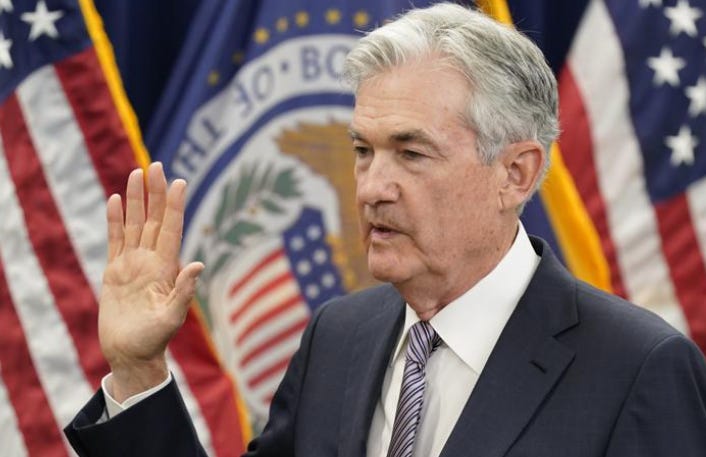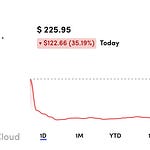Listen to Founder Chats: This week we spoke with Alga Biosciences (YC W22), which is on a mission to stop cows from burping methane using kelp!
Today, the Market reacted positively to the Federal Reserve's Open Market Committee notes, which showed the Fed plans to stay the course. All major indexes rose:
• The S&P 500 was up by +0.95%
• The Dow edged up +0.60%
• The NASDAQ Composite climbed by +1.51%
• The Russell 2000 surged by +1.95%
The Market rallied due to a softer tone from the Federal Reserve (the Fed) after a couple of meetings that showed a hard tilt toward credit tightening.
While it has become clear that bringing down inflation is the sole focus of the Fed, the central bank could have room to reign in the pace of interest rate hikes later this year if inflation peaks out.
Moderate tones from the Federal Reserve
Wall Street largely anticipated today's minutes from the Federal Open Market Committee, which showed that the Fed would not take a more aggressive stance on inflation. The Fed plans to hike interest rates by another 0.5% in June, bringing its target rate between 1.25% and 1.5% by the end of the Summer.
As the economy has already started to cool off due to rising interest rates and high inflation, the Fed believes that its tight monetary policy will provide more flexibility in the latter half of the year.
The Market’s reaction today also goes to show that Wall Street is starting to believe in the Fed's policy path again, which was slow to tighten but has now regained some credibility through tightening measures. Recently confirmed to a second term, Fed Chairman Jerome Powell has another term to determine his reputation and legacy.
Some analysts are already looking ahead to the Fed's July meeting, during which the Fed could raise interest rates by just 0.25%, lower than Wall Street's estimates. But most economists on Wall Street now believe that inflation won't normalize until the back half of 2022
Why does this matter?
Today, the Fed's message points to a strategy where the government wants to signal an aggressive stance to have more room to maneuver slowdowns in the latter half of the year.
The Fed's policy is having its intended effect in cooling down the economy, with the sole aim of bringing down inflation. The prospect alone of higher interest rates has had a rippling impact throughout the US economy, cutting economic growth forecasts for 2022.
From mortgage rates to car loans, borrowing has become more expensive as lenders anticipate higher rates in the future. Consumers are starting to pull back on their purchases and shunning large ticket purchases such as new cars and homes. Yesterday, a report showed that new home sales fell -16% in April compared to March.
One might ask, "well, if there's less demand, isn't that bad for companies and, therefore, stocks?" Definitely. And this lower demand has been somewhat priced into the declining share prices we've seen this year. But companies are more concerned with inflation.
Runaway inflation could throw the economy into stagnation and long-term recession, where costs are rising but demand is falling. That would likely sink the country into a deep recession—far worse than a couple of bad quarters of growth.
Intro to Alga:
Alga uses a special type of Kelp that supplements cattle feed to negate their cow burps, reducing greenhouse gas emissions
Demonstrated 100% methane reductions in trials, and have a pilot this fall with 15,000 cows
Developing a two-sided market that pays farmers to use the kelp, and uses impact to sell carbon credits to corporations looking to offset their emissions
Co-founders are the former chief of staff at LiveRamp and two chemistry PhD candidates













